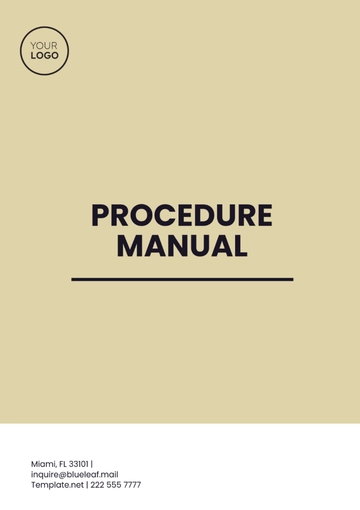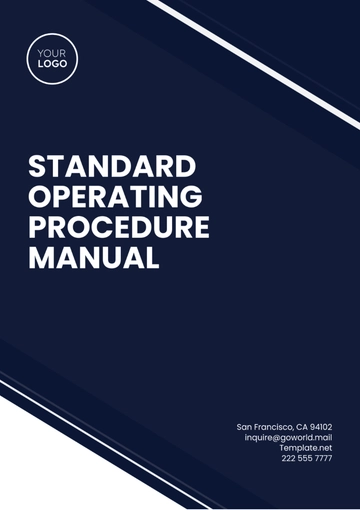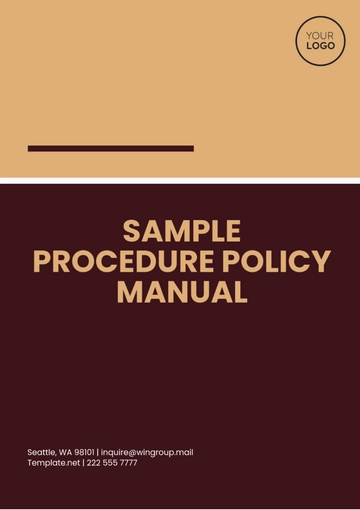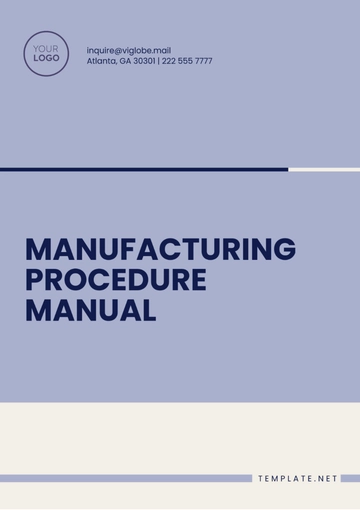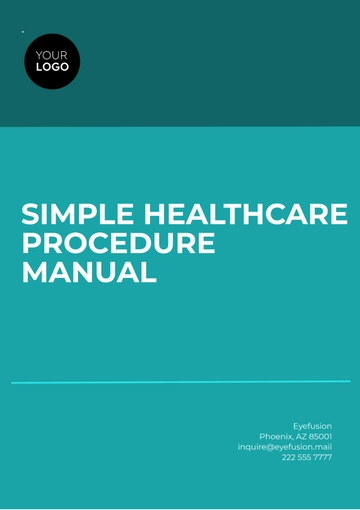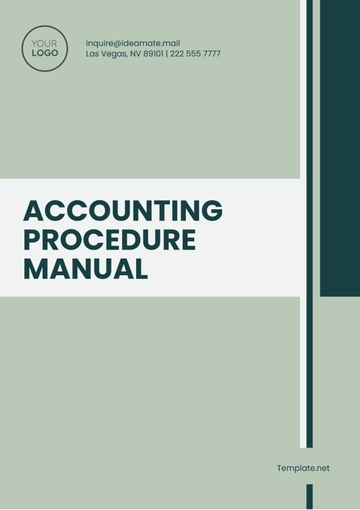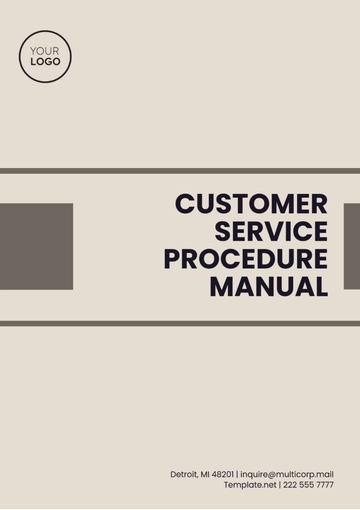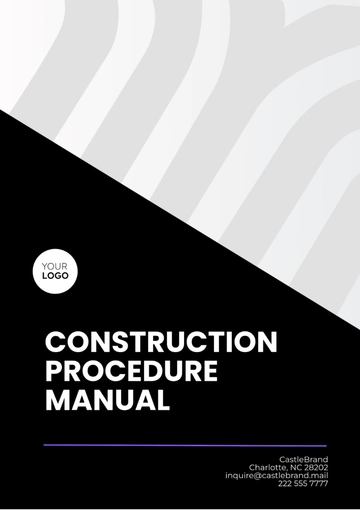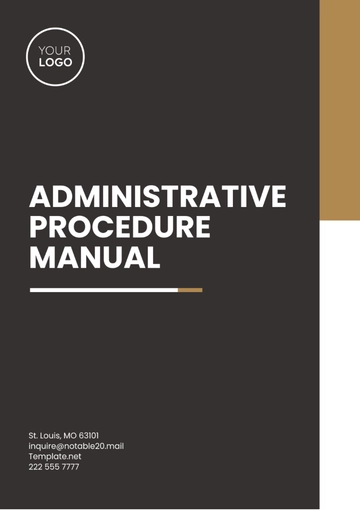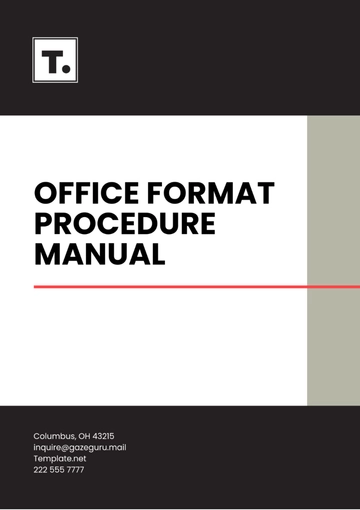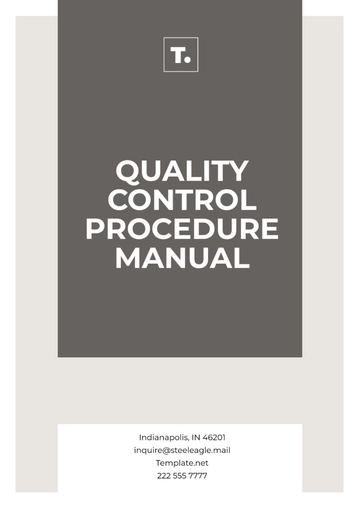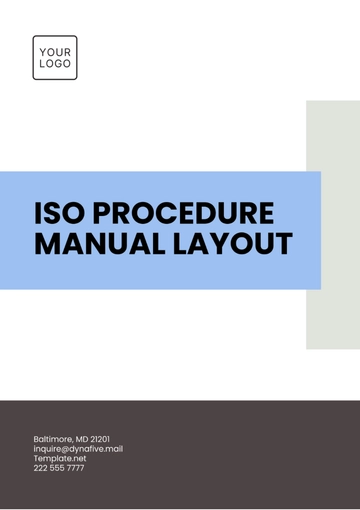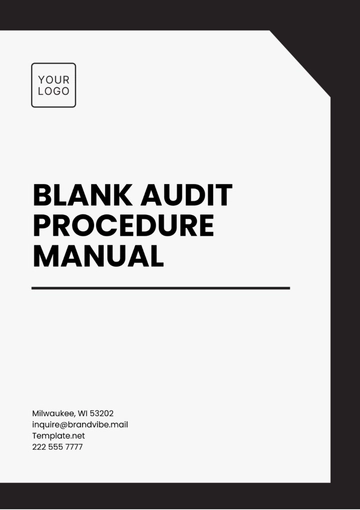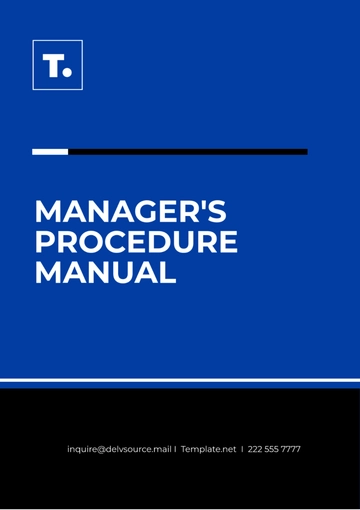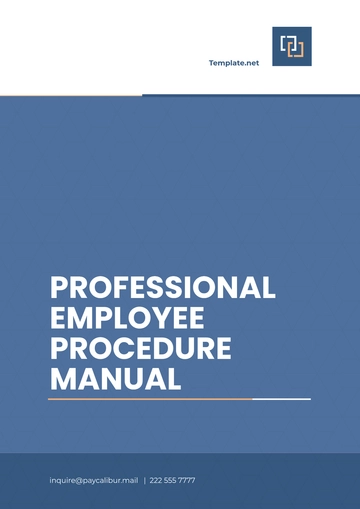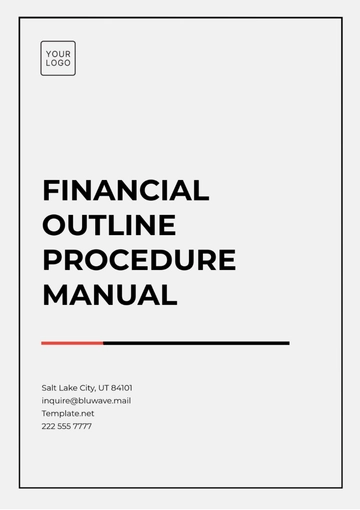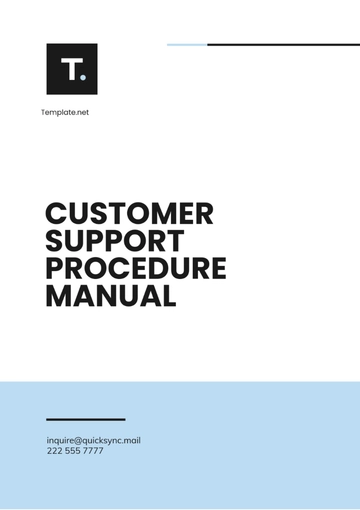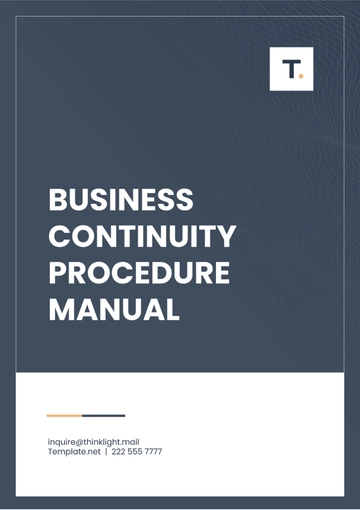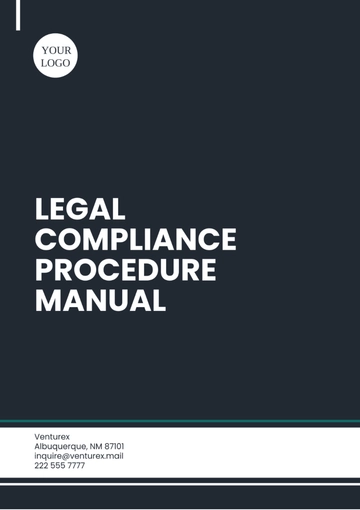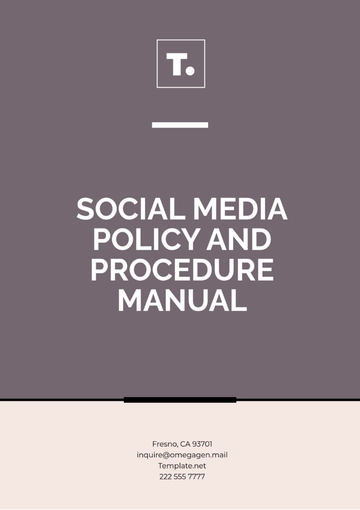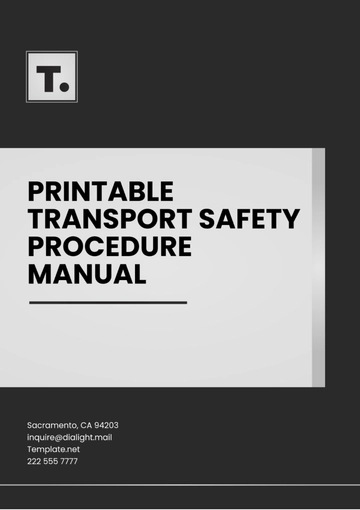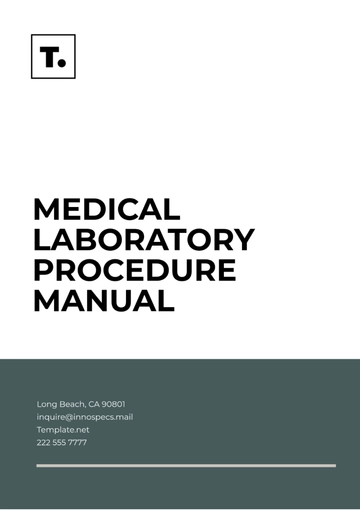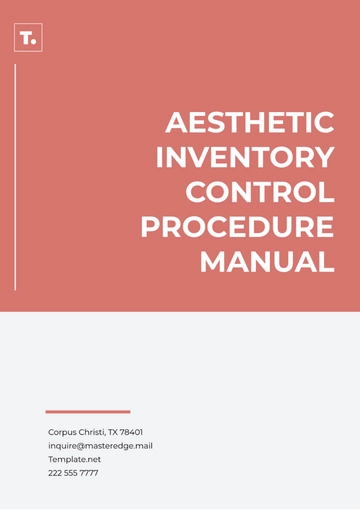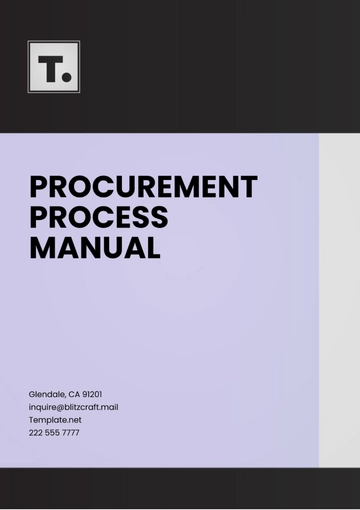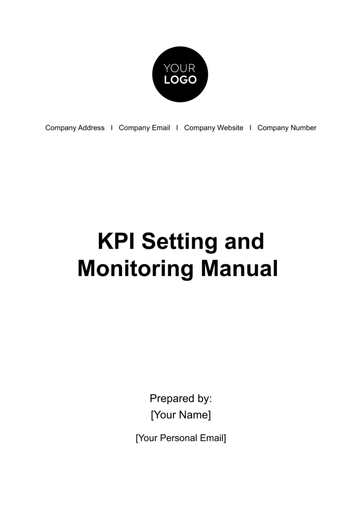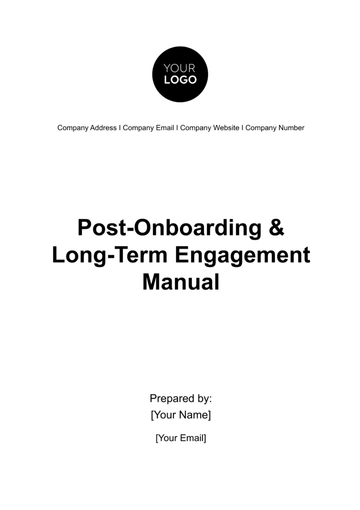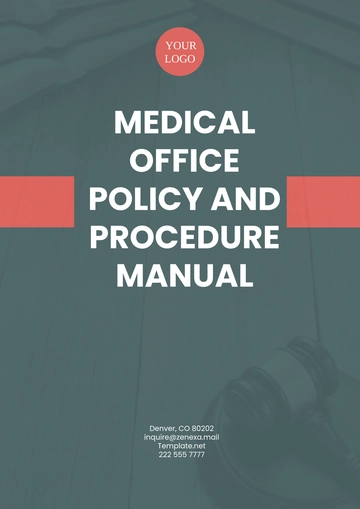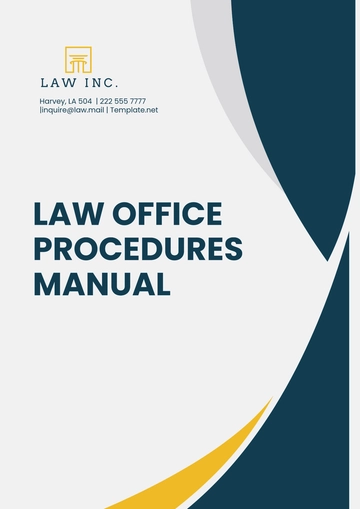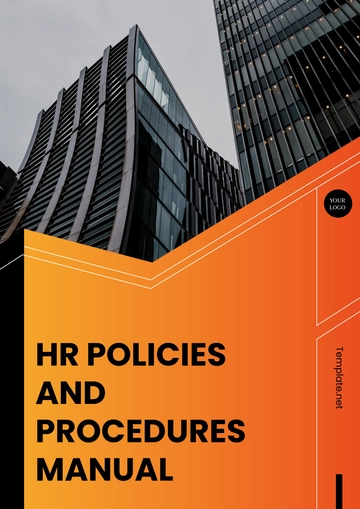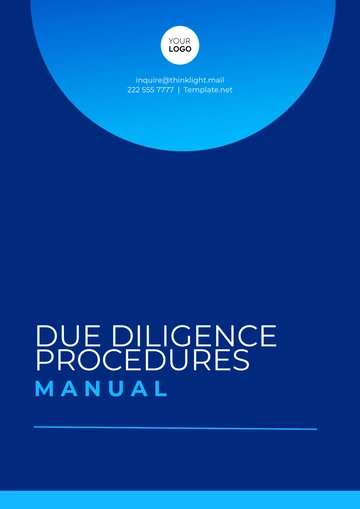Free Administration Compliance Training Manual
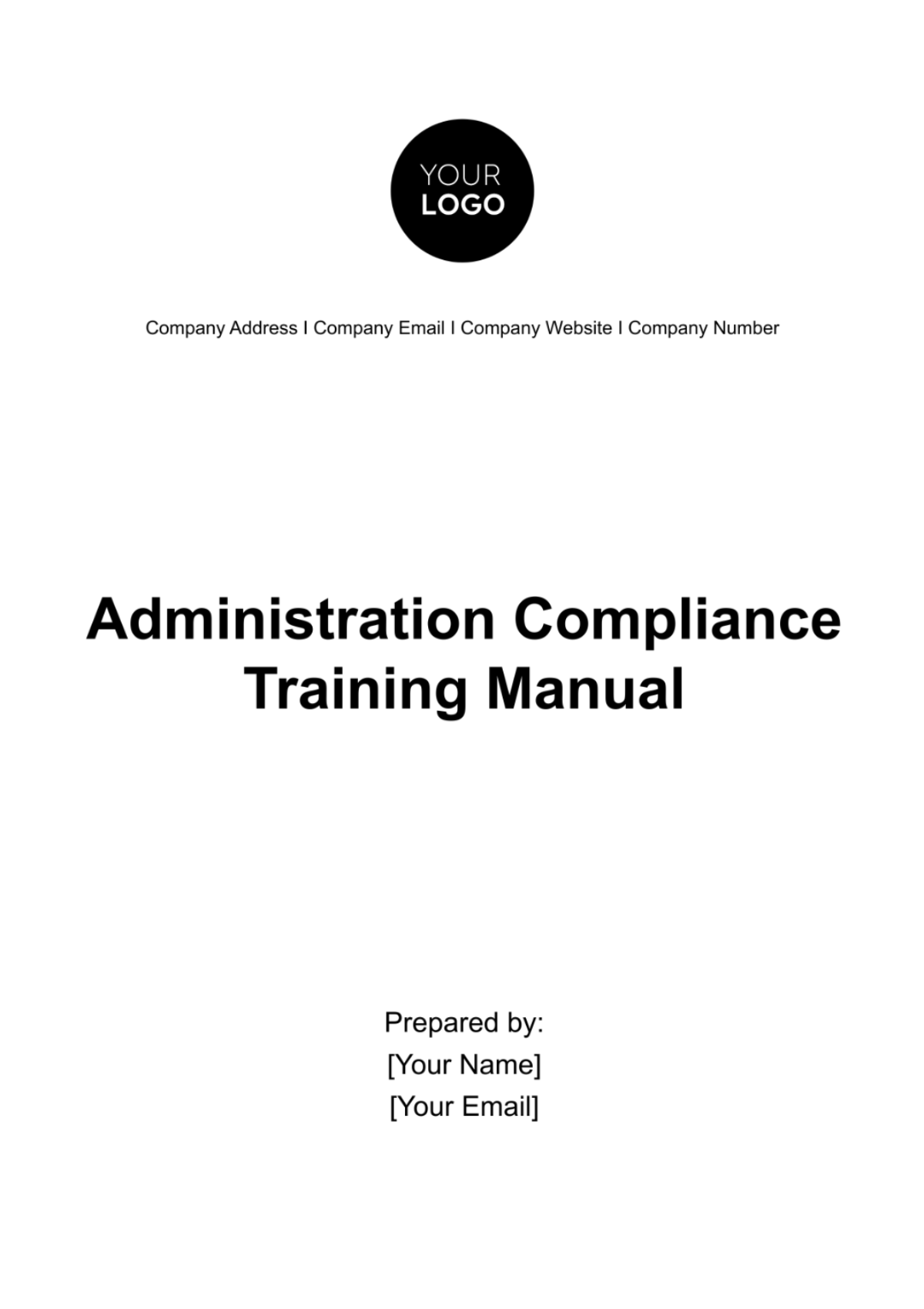
I. Introduction to Administration Compliance
Welcome to the Administration Compliance Training Manual, a comprehensive guide created to navigate you through the core principles and responsibilities of Administration Compliance at [Your Company Name]. This manual serves as a foundational tool, designed to elucidate the significance of compliance and your vital role in fortifying our company’s adherence to essential regulations and policies.
Embracing compliance is not just about abiding by laws; it’s about cultivating an environment of transparency, integrity, and excellence that propels [Your Company Name] toward its strategic goals. Together, let’s embark on this journey of understanding and commitment to uphold the highest standards of compliance.
II. Understanding Administration Compliance Guidelines
In this section, we explore the core of Administration Compliance, offering a clear perspective on the myriad of internal policies, industry regulations, and federal laws that dictate our operational framework. Our goal is to furnish you with the insights and instruments essential for mastering these intricate guidelines, ensuring [Your Company Name] not only complies with but surpasses the necessary standards. To this end, we've divided this section into three comprehensive subheadings:
A. Navigating Internal Policies
Under this subheading, we dissect the internal policies that are the backbone of [Your Company Name]'s operational integrity. From data protection protocols to ethical business practices, we provide a detailed overview of each policy, explaining its purpose, application, and the role you play in upholding these standards. This segment is designed to familiarize you with the internal compass guiding our day-to-day operations and decision-making processes.
Policy Category | Description | Purpose | Your Role |
|---|---|---|---|
Data Protection | Protocols to secure personal and sensitive information. | To prevent data breaches and ensure privacy. | Follow data handling and security procedures. |
Ethical Business Practices | Guidelines for maintaining integrity in all business dealings. | To foster trust and uphold [Your Company Name]'s reputation. | Conduct business honestly and ethically. |
Workplace Safety | Measures and protocols for ensuring a safe working environment. | To prevent workplace injuries and promote health. | Adhere to safety guidelines and report hazards. |
Conflict of Interest | Policies to avoid personal interests conflicting with company interests. | To ensure decisions are made in the company's best interest. | Disclose potential conflicts and abstain from biased decisions. |
Equal Opportunity Employment | Standards for ensuring fair treatment and non-discrimination. | To promote diversity and inclusion within the workplace. | Treat all colleagues fairly and report any discrimination. |
B. Comprehending Industry Regulations
Here, we delve into the specific regulations that govern our industry, detailing how these external guidelines impact our business practices and client interactions. By breaking down complex regulatory frameworks into understandable components, we aim to empower you with the knowledge needed to navigate these requirements confidently. This includes understanding compliance thresholds, regulatory bodies, and the implications of these regulations on [Your Company Name]'s operations.
Regulation Area | Impact on Business | Compliance Thresholds | Your Role |
|---|---|---|---|
Consumer Protection | Affects product standards and marketing practices. | Adherence to truth in advertising and product safety standards. | Ensure products and marketing materials meet regulatory requirements. |
Environmental Standards | Governs waste management and pollution control. | Compliance with emission limits and waste disposal regulations. | Participate in sustainability initiatives and proper waste disposal. |
Financial Reporting | Influences accounting practices and transparency. | Accurate financial disclosures and reporting in line with GAAP. | Maintain accurate records and report financial anomalies. |
Data Privacy | Impacts how customer data is collected, used, and stored. | Compliance with GDPR, CCPA, or other applicable laws. | Follow data privacy protocols and report breaches. |
C. Adhering to Federal Laws
The adherence to federal laws is non-negotiable and foundational to our legal and ethical standing in the wider business community. This section outlines the federal statutes that affect our business, including but not limited to employment law, anti-discrimination policies, and financial reporting standards. We provide practical advice on how to ensure compliance with these laws, highlighting the consequences of non-compliance and the importance of a proactive approach to legal obligations.
Federal Law | Description | Implications for Non-Compliance | Your Role |
|---|---|---|---|
Employment Law | Governs worker rights and employer responsibilities. | Penalties, fines, and legal action against the company. | Understand your rights and responsibilities; report violations. |
Anti-Discrimination Policies | Prohibits discrimination based on race, gender, religion, etc. | Legal consequences and damage to company reputation. | Promote an inclusive environment and report discriminatory practices. |
Financial Reporting Standards | Requires accurate financial reporting and transparency. | Legal penalties, fines, and loss of investor trust. | Ensure all financial documentation is accurate and transparent. |
Health and Safety Regulations | Mandates standards for a safe workplace. | Fines and penalties; potential shutdowns. | Follow safety guidelines and report unsafe conditions. |
III. The Importance of Compliance
Compliance stands as the foundation of operational superiority and ethical business conduct, acting as a protective barrier for [Your Company Name] against legal vulnerabilities, fostering ethical practices, streamlining operational processes, and reinforcing our standing among stakeholders. It embodies our commitment to not only abide by the law but to exceed ethical expectations, ensuring our operations are both efficient and honorable. This understanding is crucial, as it directly impacts our ability to conduct business responsibly and successfully in the competitive landscape. To further dissect the importance of compliance, we delve into three key areas:
A. Legal Protection
Compliance shields [Your Company Name] from potential legal challenges and penalties. By adhering to the laws and regulations that govern our industry, we minimize the risk of fines, legal disputes, and reputational damage. Your vigilance and commitment to compliance practices ensure our operations remain within the bounds of legal requirements, safeguarding our company and its assets.
B. Ethical Standards
At the heart of compliance is our dedication to ethical standards. This commitment not only reflects our corporate values but also strengthens trust with our clients, employees, and the community. Your role in upholding these standards is instrumental in fostering a work environment that prioritizes integrity and transparency, making [Your Company Name] a respected and trusted entity in our industry.
C. Operational Efficiency
Compliance is integral to maintaining and enhancing operational efficiency. It ensures that our business processes are streamlined and that we are making the most of our resources while adhering to best practices and regulations. Your adherence to compliance protocols contributes to the smooth operation of our business, reducing the risk of operational hiccups and enabling us to deliver exceptional service to our clients.
IV. Accurate Documentation and Reporting Procedures
This section introduces you to the carefully structured procedures that have been put in place to guarantee that every compliance-related action and transaction within our organization is recorded with the highest degree of accuracy. Grasping the critical nature of meticulous record-keeping is essential for every team member, as it plays a pivotal role in risk mitigation and promotes a culture of accountability and transparency. Through detailed instructions and best practices, we aim to empower you with the knowledge and tools necessary to document and report effectively, ensuring that [Your Company Name] remains a paragon of compliance and integrity in our industry. Let’s explore the key components that underpin our documentation and reporting framework:
A. Establishing a Documentation Standard
This subsection details the standardized formats and templates [Your Company Name] employs for recording information. It emphasizes the importance of consistency in how data is documented, from internal memos to financial transactions, ensuring that all records are easy to understand, trace, and verify. By adhering to these standards, you contribute to the creation of a robust audit trail that supports compliance and operational excellence.
Document Type | Standard Format | Purpose | Usage Guidelines |
|---|---|---|---|
Internal Memos | Template with header, body, and footer sections. | To communicate internally in a uniform manner. | Use for internal communications; include date, subject, and sender/receiver details. |
Financial Transactions | Standardized financial report templates. | To ensure accurate financial record-keeping. | Record all transactions immediately with full details of the transaction. |
Meeting Minutes | Pre-defined template capturing attendees, agenda, and decisions. | To maintain a clear record of meetings and decisions made. | Use during all official meetings; distribute to all relevant parties afterwards. |
Compliance Reports | Compliance report format with sections for findings, actions, and recommendations. | To document compliance checks and corrective actions. | Complete after every compliance review or audit; store securely for reference. |
B. Reporting Mechanisms and Protocols
Here, we outline the protocols for reporting compliance-related information, including the channels and tools available for submitting reports. It covers the procedures for escalating issues, the timelines for regular reporting, and guidelines on confidentiality and data protection. Understanding these mechanisms ensures that you can report accurately and promptly, a critical factor in maintaining the integrity of our compliance program.
Report Type | Submission Channel | Timeline | Confidentiality Protocol |
|---|---|---|---|
Compliance Issues | Dedicated compliance reporting platform or hotline. | As soon as an issue is identified. | Follow strict data protection guidelines; reports can be made anonymously. |
Regular Compliance Reports | Compliance management system or email to the compliance department. | Monthly or as defined by the compliance calendar. | Handle data with care; ensure only authorized personnel have access. |
Incident Reports | Incident reporting tool or direct email to the security team. | Immediately after incident occurrence. | Maintain confidentiality; share details only with relevant parties. |
C. Training and Support for Documentation
Recognizing the challenges that come with rigorous documentation requirements, [Your Company Name] provides comprehensive training sessions and resources to support staff in mastering these procedures. This subsection explains the available training programs, including e-learning modules and workshops, and how to access support when facing difficulties with documentation tasks. It underscores our commitment to equipping you with the necessary skills and knowledge to fulfill your documentation responsibilities effectively.
Training Program | Format | Accessibility | Support Provided |
|---|---|---|---|
Documentation Best Practices | E-learning modules and live workshops. | Available on the company intranet and through scheduled sessions. | Q&A sessions, hands-on practice, and feedback on documentation exercises. |
Compliance Reporting Tools | Online tutorials and in-person training sessions. | Access through the company intranet and registration for in-person sessions. | Technical support desk, user manuals, and FAQs for troubleshooting. |
Financial Documentation | Webinars and classroom training. | Schedule and registration details available on the company intranet. | Access to finance experts for questions, template guides, and example documents. |
V. Adhering to Legal and Regulatory Standards
This section of our manual not only highlights the crucial importance of strict compliance in our everyday operations but also lays bare the complex legal and regulatory frameworks that dictate the boundaries of our business practices. Through a detailed exploration of the potential severe repercussions of non-compliance, it becomes evident how each employee's dedication to these standards is pivotal to our collective success. Our adherence is a testament to our integrity, safeguarding our reputation, and ensuring our continued prosperity in a competitive landscape.
A. Legal Frameworks and Their Impact
Dive into the specific laws and regulations that directly influence our operational procedures and strategic decisions. Understanding these legal frameworks is essential for navigating the potential pitfalls that could compromise our business integrity and financial stability.
Legal Framework | Impact on Operations | Key Requirements | [Your Company Name]'s Approach |
|---|---|---|---|
Data Protection Laws | Affects how customer data is collected, stored, and used. | Implement strong data security measures; ensure transparency in data processing. | Regular data protection training; adherence to GDPR, CCPA, or applicable laws. |
Employment Legislation | Governs employee rights and workplace conditions. | Fair labor practices; safe and inclusive work environment. | Continuous HR training; strict anti-discrimination policies. |
Environmental Regulations | Regulates waste management and emissions. | Compliance with emission standards; sustainable waste disposal practices. | Eco-friendly operations; regular environmental impact assessments. |
Financial Compliance Standards | Influences financial reporting and ethical business practices. | Transparent financial disclosures; anti-fraud measures. | Annual financial audits; ethical investment policies. |
B. Regulatory Bodies and Compliance Obligations
Unpack the roles of various regulatory bodies and the compliance obligations they impose on our operations. This subsection is designed to equip you with the knowledge to understand and meet these requirements, ensuring that our business activities are both lawful and ethical.
Regulatory Body | Compliance Obligations | Purpose | [Your Company Name]'s Compliance Strategy |
|---|---|---|---|
Occupational Safety and Health Administration (OSHA) | Adherence to workplace safety standards. | Ensure a safe working environment. | Implementing comprehensive safety protocols; regular safety training. |
Environmental Protection Agency (EPA) | Compliance with environmental standards. | Protect the environment; promote sustainability. | Sustainable business practices; environmental impact assessments. |
Securities and Exchange Commission (SEC) | Transparent financial reporting; fair trading practices. | Protect investors; maintain fair, efficient markets. | Rigorous financial oversight; transparent reporting practices. |
Federal Trade Commission (FTC) | Fair advertising and consumer protection practices. | Prevent deceptive business practices; protect consumer rights. | Ethical marketing strategies; consumer rights education programs. |
C. Strategies for Risk Mitigation
Explore the proactive strategies [Your Company Name] employs to mitigate the risks associated with non-compliance. From regular audits to comprehensive employee training, learn how your active participation in these practices is crucial for minimizing legal risks and promoting a culture of compliance.
Strategy | Description | Implementation | Outcome for [Your Company Name] |
|---|---|---|---|
Regular Compliance Audits | Evaluates adherence to legal and regulatory standards. | Conduct internal and external audits bi-annually. | Identifies and rectifies compliance gaps; ensures continuous adherence. |
Compliance Training Programs | Educates employees on their legal and regulatory obligations. | Mandatory annual training for all employees. | Enhances compliance awareness; reduces risk of non-compliance. |
Risk Management Framework | Identifies, assesses, and mitigates legal and compliance risks. | Ongoing risk assessment; implementation of mitigation strategies. | Minimizes exposure to legal and financial risks; promotes a culture of compliance. |
Whistleblower Support System | Encourages reporting of unethical or illegal activities without fear of retaliation. | Anonymous reporting channels; protection protocols for whistleblowers. | Early detection of compliance issues; fosters an ethical workplace environment. |
VI. Understanding the Consequences of Non-Compliance
Non-compliance carries significant risks, not only to [Your Company Name] but to individual staff members. This section outlines the potential legal, financial, and reputational consequences of failing to comply with the established standards. By understanding what constitutes non-compliance and its impacts, you play a pivotal role in safeguarding our organization against these risks.
A. Legal Frameworks Governing Our Operations
Explore the legal scaffolding that supports our industry, including the specific laws and regulations directly impacting our business practices. This subsection aims to demystify the legal obligations we must fulfill, providing a clear path for compliance.
Law/Regulation | Description | Impact on [Your Company Name] | Compliance Requirements |
|---|---|---|---|
Data Protection Act | Governs how companies collect, use, and store personal data. | Ensures customer data is handled securely and ethically. | Implement robust data security measures; ensure transparency in data usage. |
Employment Law | Covers worker rights, including wages, working hours, and discrimination. | Affects hiring, employee management, and workplace policies. | Maintain fair labor practices; provide a safe and inclusive workplace. |
Environmental Regulations | Sets standards for waste management and pollution control. | Impacts operational processes, especially in manufacturing and waste disposal. | Adopt eco-friendly practices; ensure proper waste management protocols are followed. |
Financial Regulations | Includes laws related to financial reporting, anti-fraud measures, and transparency. | Requires accurate financial disclosures and ethical financial practices. | Conduct regular audits; adhere to financial reporting standards. |
B. Regulatory Compliance and Its Impact
Delve into the specifics of regulatory compliance, understanding the agencies and bodies that set these standards, and the importance of adhering to their guidelines. Learn how compliance influences not only our legal standing but also our operational effectiveness and industry reputation.
Regulatory Body | Standards/Set Guidelines | Purpose | Impact on Operations |
|---|---|---|---|
Occupational Safety and Health Administration (OSHA) | Workplace safety standards and guidelines. | To ensure a safe working environment for all employees. | Implement safety measures; conduct regular safety training and audits. |
Environmental Protection Agency (EPA) | Environmental standards for air, water, and soil. | To minimize the environmental impact of business operations. | Ensure compliance with environmental standards; engage in sustainability initiatives. |
Securities and Exchange Commission (SEC) | Regulations on financial reporting and investment practices. | To protect investors and maintain fair, orderly, and efficient markets. | Maintain transparency in financial reporting; adhere to investment regulations. |
Federal Trade Commission (FTC) | Guidelines on advertising, marketing, and consumer protection. | To prevent deceptive and unfair business practices. | Ensure marketing materials are truthful and non-deceptive; respect consumer rights. |
C. Mitigating Risks through Diligent Compliance
This final piece focuses on the strategies and practices we employ to mitigate risks associated with non-compliance. Discover how your proactive engagement and adherence to compliance measures play a crucial role in avoiding potential pitfalls, ensuring [Your Company Name] remains a beacon of integrity and excellence in our field.
Risk Mitigation Strategy | Description | Implementation Method | Outcome |
|---|---|---|---|
Regular Compliance Training | Educates employees on legal and regulatory requirements. | Conduct annual training sessions; use e-learning platforms for ongoing education. | Enhances compliance awareness and reduces risk of non-compliance. |
Compliance Audits | Evaluates adherence to legal and regulatory standards. | Schedule regular internal and external audits. | Identifies compliance gaps and areas for improvement; ensures continuous compliance. |
Risk Management Programs | Identifies, assesses, and mitigates compliance risks. | Implement a risk management framework; conduct periodic risk assessments. | Minimizes potential compliance violations; protects against legal and financial repercussions. |
Whistleblower Policies | Encourages reporting of unethical or illegal activities. | Establish confidential reporting channels; protect whistleblowers from retaliation. | Promotes a culture of transparency and accountability; detects and addresses issues early. |
VII. Regular Audits and Compliance Checks
To ensure continuous adherence to compliance standards, [Your Company Name] conducts regular audits and compliance checks. This segment guides you through preparing for these audits, participating effectively, and understanding their importance in identifying risks, enhancing transparency, and driving improvements across our operations.
Aspect | Objective | Process | Your Role | Outcome for [Your Company Name] |
|---|---|---|---|---|
Audit Preparation | To ready the company for thorough examination of its practices and records. | Review of relevant documents and policies; pre-audit meetings to align on expectations. | Ensure your work area and documents comply with company policies; participate in pre-audit briefings. | Streamlined audit process; minimized disruptions. |
Participation in Audits | To engage in the audit process actively, providing necessary information and access to records. | Direct interaction with auditors; provision of requested documents; answering queries. | Be available and cooperative; provide accurate and complete information as requested. | Accurate and efficient audit process; identification of compliance and operational efficiencies. |
Understanding Audit Importance | To grasp the role of audits in maintaining compliance, identifying risks, and enhancing business practices. | Post-audit debriefs and reports detailing findings and recommendations. | Attend post-audit debriefs; review audit reports to understand findings and required actions. | Enhanced awareness of compliance status and areas for improvement; reinforced culture of transparency and continuous improvement. |
Follow-up and Improvement | To address audit findings by implementing recommended changes and improvements. | Development and execution of action plans to correct deficiencies and enhance practices. | Participate in implementing improvements; monitor and report on progress. | Strengthened compliance and operational practices; reduced risk of future non-compliance. |
VIII. Administration Ethics and Responsibility
At [Your Company Name], we place paramount importance on ethical conduct, viewing it as the bedrock upon which our administration compliance framework is built. This section lays the groundwork for understanding our comprehensive ethics code/policy, delineating the standards of integrity and responsibility expected of every team member. By embedding these principles into the heart of our daily activities, we ensure that our business not only thrives in its achievements but does so with honor and respect towards all stakeholders.
A. Our Ethics Code/Policy
Delve into the specifics of our ethics code, which outlines the principles guiding our decisions and behaviors. This code serves as a compass for ethical conduct, ensuring that every action we take is aligned with our values of honesty, integrity, and transparency.
Principle | Description | Application in Daily Operations |
|---|---|---|
Honesty | Commitment to truthfulness in all dealings. | Ensuring accurate reporting and communication. |
Integrity | Upholding moral principles, even in challenging situations. | Making decisions that reflect the company's ethical stance, regardless of pressure. |
Transparency | Openness in operations and decision-making processes. | Sharing information necessary for stakeholders to make informed decisions. |
B. The Role of Each Staff Member
Highlighting the individual responsibility of each team member, this section underscores the impact of personal actions on the collective ethical stance of our organization. It emphasizes the expectation for every employee to embody and promote our ethical standards in every facet of their work.
Responsibility | Expected Action | Impact on Organizational Ethics |
|---|---|---|
Promote Ethical Standards | Actively uphold and advocate for the company's ethics code. | Enhances the ethical climate and encourages others to do the same. |
Report Unethical Behavior | Utilize designated channels to report any observed unethical actions. | Maintains the integrity of the organization by addressing issues promptly. |
Continuous Ethical Development | Engage in ongoing education and reflection on ethical conduct. | Ensures personal and professional growth aligned with ethical principles. |
C. Cultivating an Ethical Culture
Explore the strategies and initiatives [Your Company Name] employs to cultivate an environment where ethical conduct flourishes. From ongoing training and open dialogue to recognition programs that celebrate ethical achievements, this subsection outlines our proactive approach to integrating ethics into our corporate DNA.
Strategy/Initiative | Description | Objective |
|---|---|---|
Ongoing Training Programs | Regular sessions focused on ethics and compliance. | Equip employees with the knowledge and skills to act ethically. |
Open Dialogue Forums | Scheduled meetings and platforms for discussing ethical dilemmas. | Foster a culture of transparency and encourage sharing of best practices. |
Recognition Programs | Awards and acknowledgments for exemplary ethical conduct. | Highlight and reward the importance of ethical behavior in achieving corporate goals. |
IX. Continuing Education and Training
[Your Company Name] recognizes the critical importance of continuous education and training for our workforce. This commitment is reflected in our diverse array of training programs, e-learning modules, and seminars, meticulously curated to empower you with up-to-date knowledge and skills. By participating in these educational offerings, you play a pivotal role in maintaining our compliance standards and reinforcing our culture of continuous improvement and adherence to best practices.
A. Comprehensive Training Programs
This subsection details the structured training programs designed to cover various compliance and ethical topics relevant to our operations. From onboarding sessions for new hires to advanced workshops for seasoned employees, these programs are tailored to meet the learning needs and schedules of all staff members, ensuring everyone is equipped to perform their roles effectively within the regulatory framework.
Program Type | Description | Target Audience | Frequency |
|---|---|---|---|
Onboarding Sessions | Introduction to company policies, compliance standards, and ethical conduct. | New hires. | At the start of employment. |
Refresher Courses | Updates on regulatory changes and reinforcement of compliance principles. | All employees. | Annually or as regulations change. |
Advanced Workshops | Deep dives into complex compliance issues and emerging industry trends. | Seasoned employees and specialized roles. | Bi-annually or as needed. |
Leadership Ethics Training | Focused on ethical decision-making and leadership responsibilities in compliance. | Managers and executive team. | Once a year. |
B. E-Learning Modules
Highlighting the flexibility and accessibility of our training initiatives, we offer a suite of e-learning modules. These online resources allow you to engage with critical compliance material at your own pace and on your schedule, making it easier than ever to stay informed on the latest regulations, policies, and ethical standards that impact our business.
Module Topic | Accessibility | Length | Completion Tracking |
|---|---|---|---|
Data Protection and Privacy | Accessible via company intranet, 24/7. | 30-60 minutes. | Automated tracking with certificates of completion. |
Anti-Money Laundering (AML) | On-demand access through the learning management system. | 45 minutes. | Completion status and quiz scores recorded. |
Workplace Safety Standards | Available on mobile and desktop platforms. | 30 minutes. | Track progress and completion across departments. |
C. In-House Seminars and Workshops
Fostering a collaborative learning environment, [Your Company Name] organizes in-house seminars and workshops led by experts in various fields of compliance, ethics, and industry-specific regulations. These sessions not only provide valuable insights and practical knowledge but also encourage dialogue and sharing of best practices among team members, enhancing our collective expertise and commitment to excellence.
Seminar Topic | Presenter | Date/Time | Objective |
|---|---|---|---|
Navigating International Compliance | Industry Expert / Compliance Officer | Quarterly | To understand global compliance challenges and strategies. |
Ethical Conduct in Everyday Decisions | Senior Leadership Team | Monthly | Highlighting the importance of ethics in daily operations. |
Handling Confidential Information | Data Protection Specialist | Scheduled per department needs | Ensuring best practices in data security and confidentiality. |
X. Feedback and Continuous Improvement
[Your Company Name] is committed to the principle of continuous improvement in our compliance program. We value and encourage feedback from our team as a crucial component of this process. If you have questions, require assistance, or wish to offer feedback on this manual or any aspect of our compliance efforts, we invite you to reach out via [Your Company Number] or [Your Company Email]. Your input is invaluable in our ongoing quest to elevate our standards and achieve excellence in compliance.
- 100% Customizable, free editor
- Access 1 Million+ Templates, photo’s & graphics
- Download or share as a template
- Click and replace photos, graphics, text, backgrounds
- Resize, crop, AI write & more
- Access advanced editor
Template.net introduces the Administration Compliance Training Manual Template. An editable and customizable document designed to meet the highest professional standards. Deftly editable in our Ai Editor Tool, it empowers you with the ability to create superior quality, impactful documents. Unleash your productivity, enhance your training program, and ensure seamless administration compliance using this dynamic tool. It's time to excel professionally. Dive in now!
